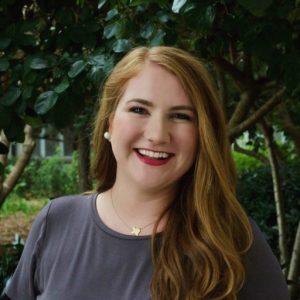During the Spring 2021 semester, the Emory Center for Digital Scholarship (ECDS) and Laney Graduate School (LGS) once again offered our Technology, Pedagogy, Curriculum + Research (TPC+R) Program. TPC+R is a six-week TATTO extension program open to Emory University graduate students from all disciplines, designed to supplement other pedagogical training and professional development programming offered by academic departments, the graduate school, and ECDS. The program presents an opportunity for graduate students to explore new technologies in their teaching, curriculum-building, and research. Participants were introduced to an array of digital tools, discussed practical and theoretical models for digital scholarship, and received assistance in developing materials for their own courses and/or research. For example, participants created their own professional websites, designed digital assignments, connected with pedagogy and research experts across the university, and participated in workshops on digital research tools.
 This year’s cohort of TPC+R was comprised of 11 students across 7 fields, including religion, nutrition and health sciences, and art history. Instructor Bailey Betik (ECDS Digital Pedagogy Lead) comments reflected on the success of this year’s program despite (or perhaps made even more relevant by) restrictions due to the ongoing COVID-19 pandemic, commenting:
This year’s cohort of TPC+R was comprised of 11 students across 7 fields, including religion, nutrition and health sciences, and art history. Instructor Bailey Betik (ECDS Digital Pedagogy Lead) comments reflected on the success of this year’s program despite (or perhaps made even more relevant by) restrictions due to the ongoing COVID-19 pandemic, commenting:
The real upside to teaching a class on digital pedagogical and research tools is that the virtual environment actually enhances our course! Virtual learning of course gives us the ability as instructors to use collaborative tools like the Zoom Annotate feature and Google Doc worksheets in class discussion, but it also allows students to experiment in real time with demonstrated technologies—like Voyant, ImaginePhD, or StoryMaps. Virtual teaching also gave us the ability to bring in expert speakers on topics like copyright, data preservation, and presentation technologies.
Betik adds that, after a year of pandemic Zoom teaching, TPC+R participants showed a growing interest in creating digital assignments and figuring out ways to bring digital tools into the classroom. Sessions that students found most helpful centered around best practices for inclusive pedagogy, creating digital storytelling projects, and brainstorming uses for low-bridge technologies like Canva, KnightLab, or Twitter in the classroom.
One thing I’ve noticed in teaching both EFOT [Emory Foundations for Online Teaching: learn more about the Summer 2021 EFOT session in our previous blog post] and TPC+R in the pandemic are the ways in which these “digital” trainings inform students’—and my own—conceptions of research and teaching in face-to-face settings. The pandemic has magnified questions of accessibility and equity in curricular materials and teaching activities: Do you have transcripts for each video you will show in class? Are Google Forms or Spotify for a playlist assignment available for certain international students? Are students really going to sit through an hour and a half lecture on Zoom without having regular check-in points, engaging activities, or varied content? These are ideas we should be thinking about in face-to-face settings anyway, and the online environment has given us the gift of time to think through and work on our pedagogical practice.
Among the many topics explored over six weeks, some of the popular sessions included digital storytelling and the ImaginePhD professionalization session with Rob Pearson (Assistant Dean, Professional Development and Career Planning). Participants commented that the balance of teaching to research was good and that they appreciated the “Further Resources” document that TPC+R instructors provided. Other sessions included: using Canvas and Zoom; Inclusive Pedagogy and Accessibility; Data Visualization; Copyright, Fair Use, and Open Access; and more.
Betik reflects:
Our goal with TPC+R was to equip graduate students with a toolbelt of assignment ideas, technologies, and connections to on-campus experts so that they can come out on the other side of this pandemic curious about applying them in their own work and confident in how to do so.
We hope that future iterations of TPC+R will lead to continued success. You can learn more about the program on our website or search the “TPC+R” tag on our blog.
Header image (modified) source: Ananya Nair from Pixabay
